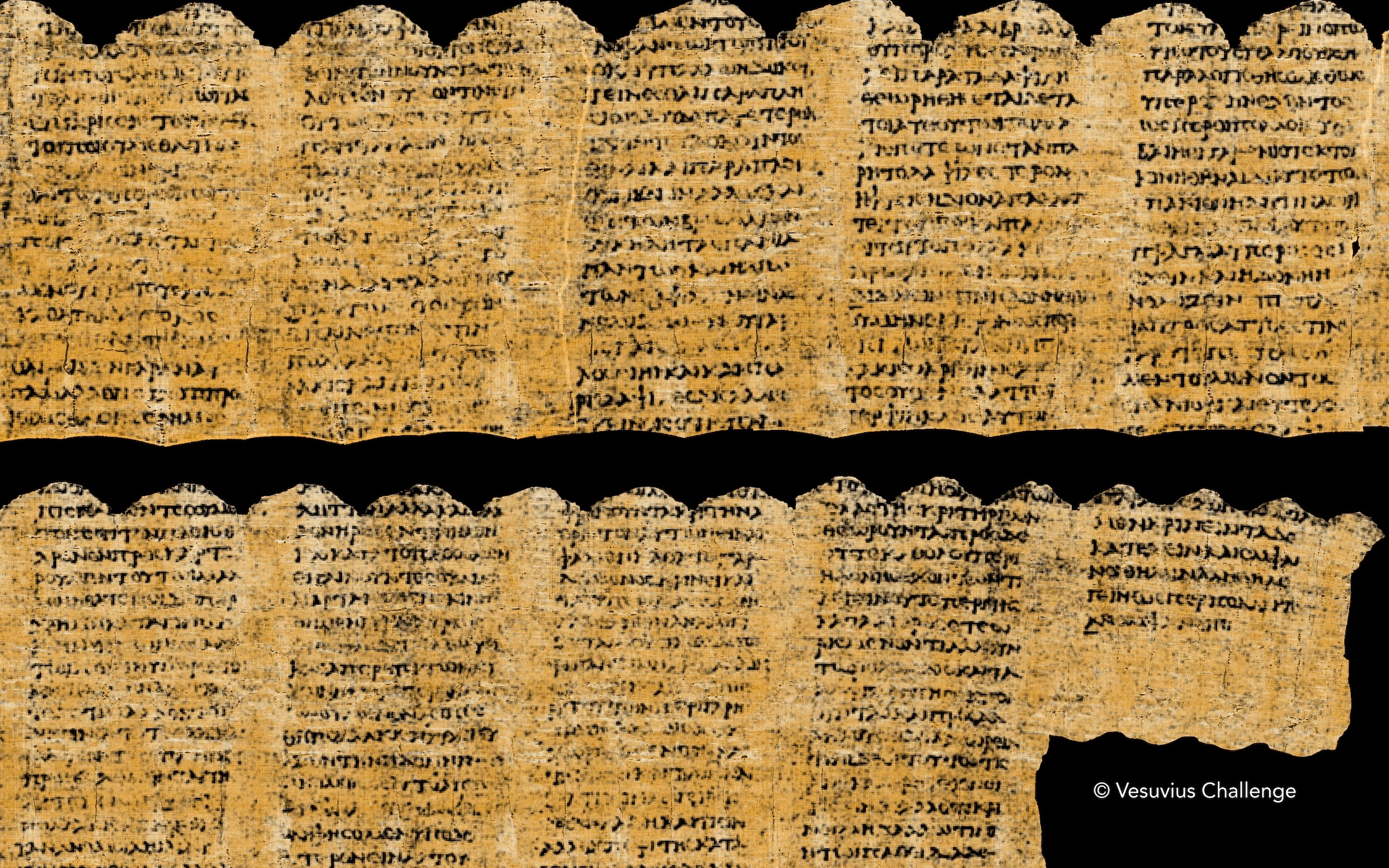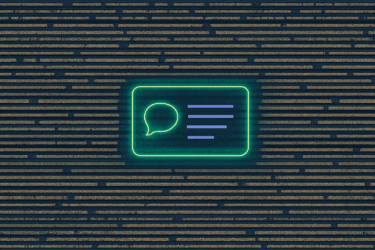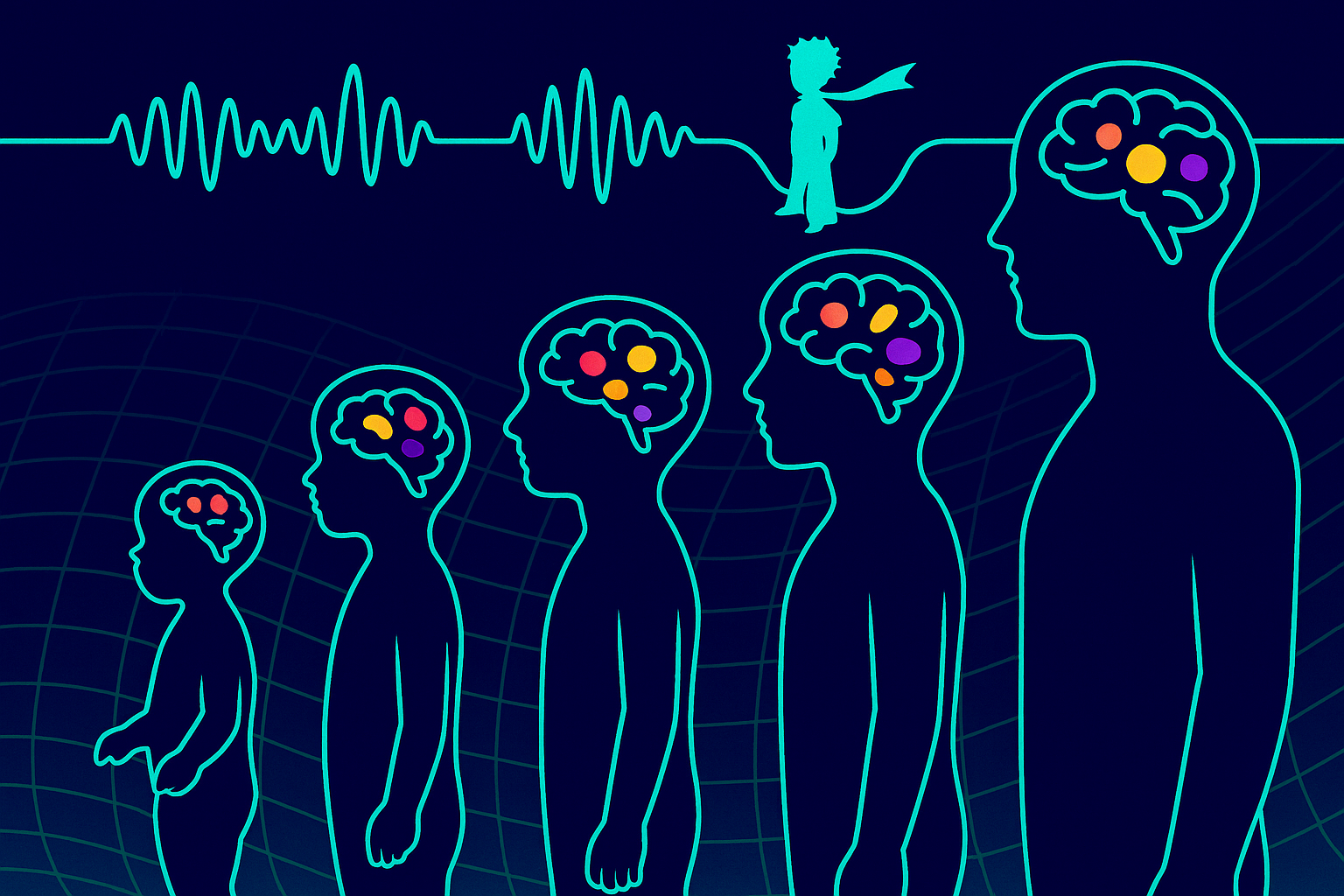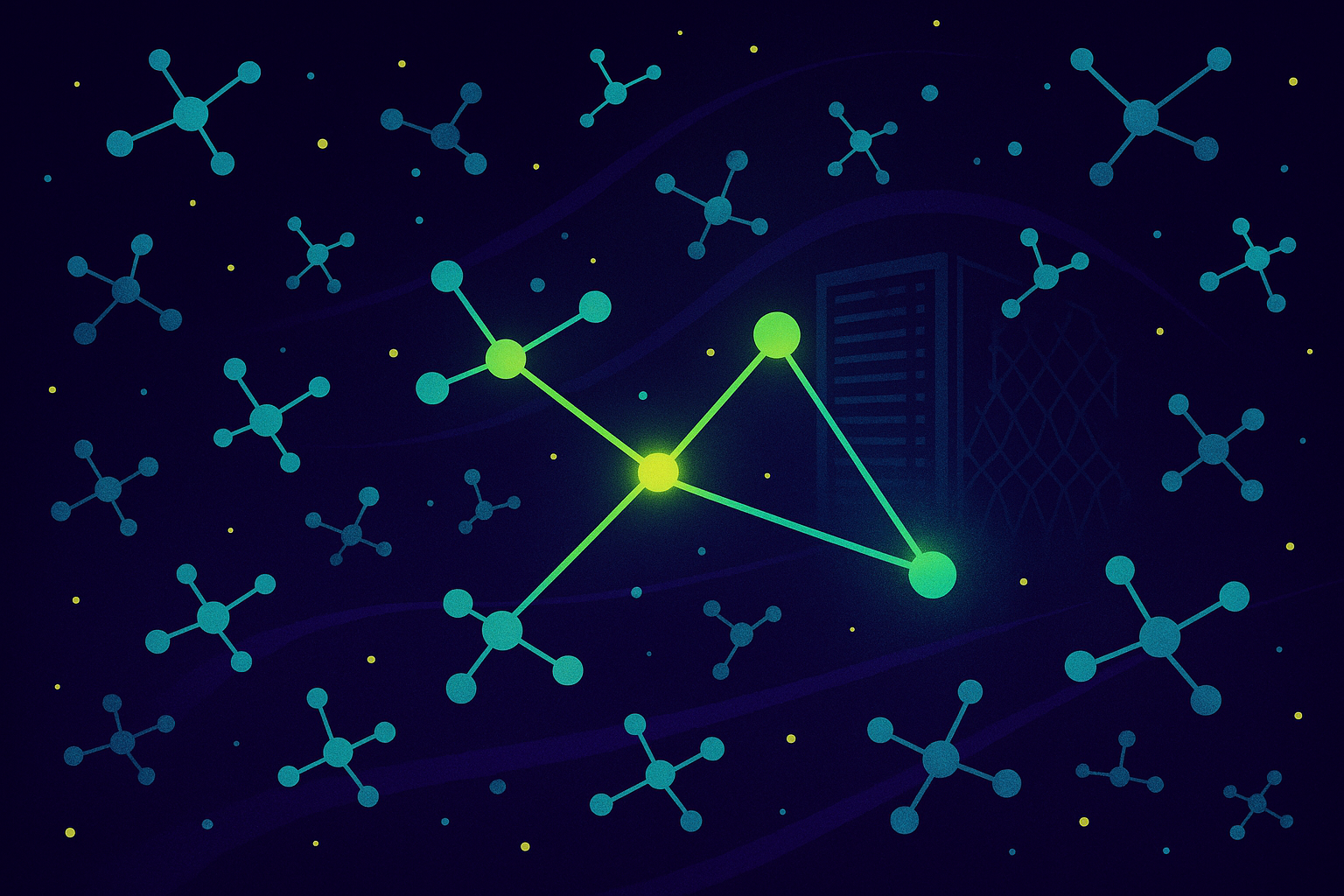The first phase of the Vesuvius Challenge has been completed: Thanks to AI, the first passages of a previously unknown ancient text from the Papyri of Herculaneum have been deciphered.
On March 15, 2023, Nat Friedman, Daniel Gross, and Brent Seales launched the Vesuvius Challenge, a global competition with over a million dollars in prize money to decipher ancient papyrus scrolls known as the Papyri of Herculaneum. Discovered in the 18th century, these scrolls were buried and charred by the eruption of Mount Vesuvius in A.D. 79. The challenge was to develop innovative techniques to read the scrolls without damaging them, using computer vision, machine learning, and intensive collaboration.
Less than a year later, in December 2023, the challenge was completed: The winning team was announced yesterday on the Vesuvius Challenge website. The $700,000 grand prize went to Youssef Nader, Luke Farritor, and Julian Schilliger, who formed a "super team" to create the most readable submission using a combination of three different model architectures. Their entry met the contest criteria of four passages of 140 characters each, of which at least 85% were readable.
First text probably by philosopher Philodemus
The Vesuvius Challenge consisted of three main phases: scanning the scrolls with X-ray tomography, segmenting the scans to reconstruct the crumpled layers of the rolled papyrus, and using AI to detect the ink in the smoothed segments. The winning team's submission included the most powerful approach to automatic segmentation, a tool called ThaumatoAnakalyptor (roughly "Wonder Discoverer") by Julian Schilliger, which generated massive papyrus segments from multiple rolls.
The result of the challenge revealed about 5% of the first scroll, which contains a previously unknown ancient text. Preliminary transcriptions indicate that the scroll is a philosophical text by Philodemus, an Epicurean philosopher who was probably the resident philosopher of the villa where the scrolls were found. The text is about the joys of life and what makes life worth living, according to the team.
Second phase aims to decipher 90 percent of four scrolls
The Vesuvius Challenge is now entering its second phase, intending to read 90% of the four scanned scrolls by automating the segmentation process and perfecting the automatic segmentation techniques. The 2024 Grand Prize will be awarded to the first team to achieve this goal. The organizers also plan to hire a small software and machine learning team to work with the community to advance the state of the art in the field.
With the success of the Vesuvius Challenge, the possibility of reading all 800 scrolls in the Herculaneum collection has become a reality. This massive undertaking could unlock a treasure trove of ancient knowledge and provide insights into a world that has been hidden for millennia.






